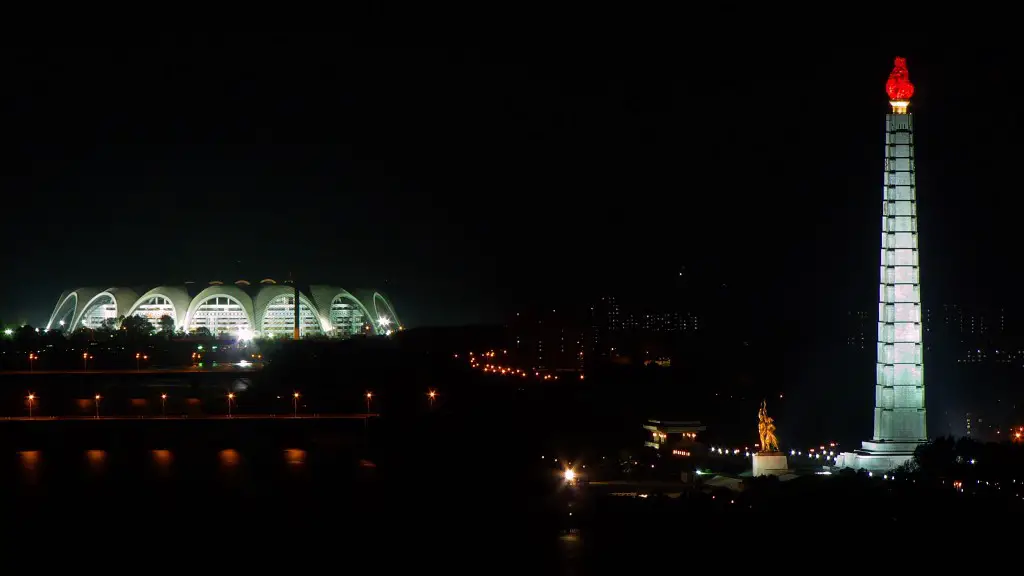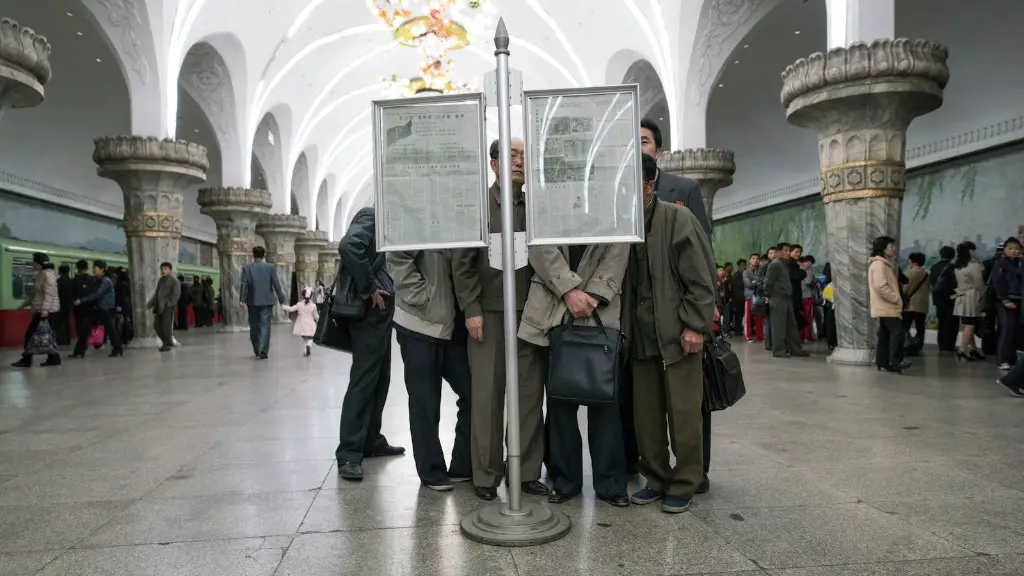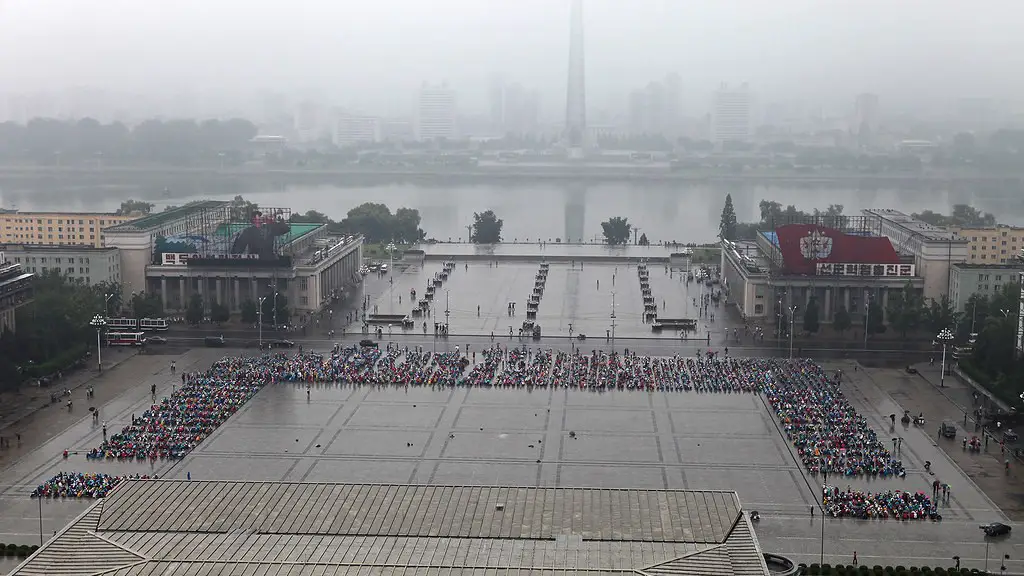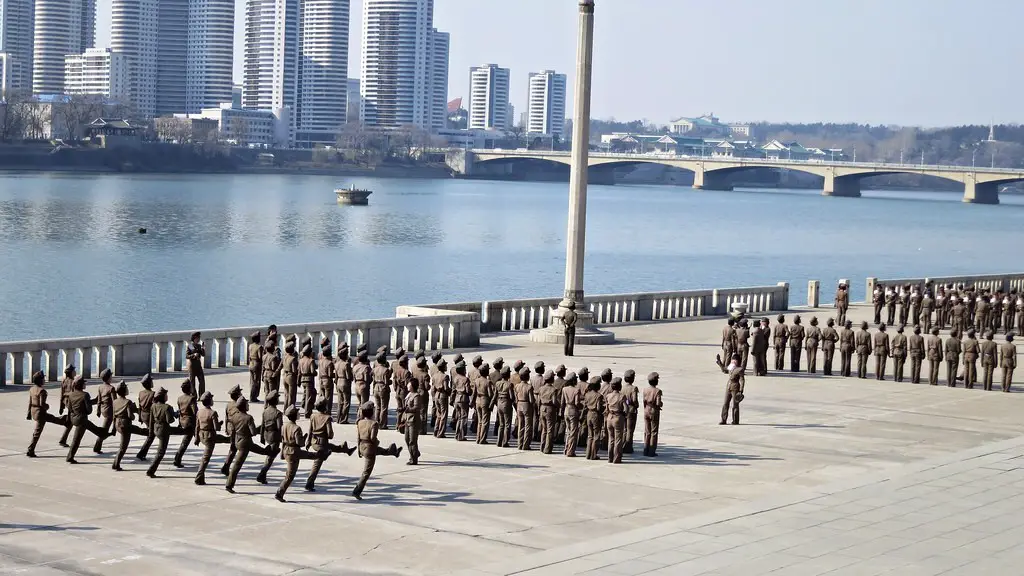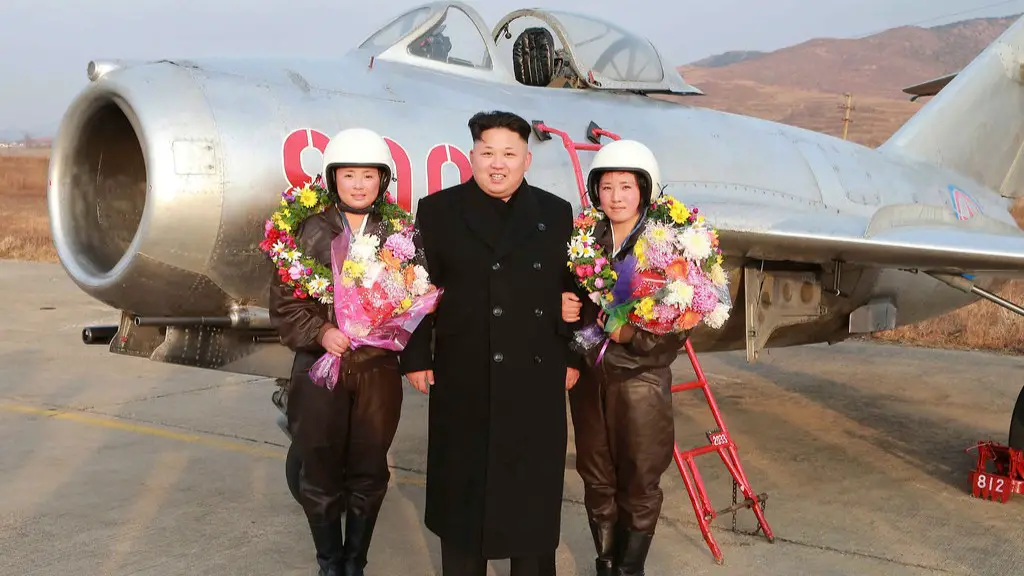North Korea’s Nuclear Capabilities
North Korea’s nuclear weapons program has been a source of international insecurity for decades. Despite numerous diplomatic attempts to dissuade the regime from furthering its nuclear capabilities, the North Korean leadership has continued to pursue a nuclear ambition. In 2016, Pyongyang announced the successful test of a thermonuclear bomb, and by 2018 the regime estimated it had stockpiled an estimated 30 nuclear weapons.
Experts agree that North Korea’s nuclear and ballistic missiles pose a serious threat to the region, if not the international community at large. The country has regularly tested long- and medium- range missiles, including the KN-15, KN-08, KN-11 and KN-17, as well as its Musudan and Taepodong-2 ballistic rockets – all of which are said to be capable of delivering a nuclear payload.
In recent years, there have been signs of a thawing of relations between Washington and Pyongyang. During the June 2018 ‘Singapore Summit’, U.S. President Donald Trump and North Korean leader Kim Jong-un reached an agreement for North Korea to work towards ‘complete denuclearization of the Korean peninsula’.
Why North Korea will not give up its Nuclear Weapons
While a diplomatic solution seems within reach, North Korea will not give up its nuclear weapons. This is largely due to the fact that the North Korean regime sees its nuclear arsenal as the ultimate key to its survival.
The Pyongyang leadership believes that by positioning itself as a nuclear power, it will be able to deter any regime change attempts from foreign powers, specifically the United States. Furthermore, North Korea will also be able to gain valuable leverage in exchanges with other nations, such as making demands in exchange for its denuclearization.
Kim’s government is also aware of the success stories of other nuclear-armed nations. Take India and Pakistan, for example. Both countries acquired nuclear capabilities, yet faced decreased Western pressure and interference. This is in contrast to the situation faced by Iraq, which had no nuclear weapons, and faced international economic sanctions and ultimately military intervention.
These examples have given North Korea the impression that by possessing nuclear weapons, it will be able to protect its sovereignty from foreign aggression. Consequently, North Korea views these weapons as an indispensable instrument for its national survival.
International Stakeholders
Although the global focus has been on the U.S. and North Korea, other affected countries should also be taken into account. South Korea, China, Japan and Russia should play a major role in finding a peaceful solution to the crisis.
South Korea is North Korea’s closest neighbour, and a major target of its nuclear ambitions. Consequently, Seoul is likely to support stronger international sanctions. Meanwhile, China and Russia – two of North Korea’s closest allies – both regard the regime’s nuclear capabilities with trepidation, despite their support for Pyongyang.
Russia’s concerns about North Korean nuclear activity are driven by security and economic considerations, due to its proximity to the Korean peninsula. Until recently, China seemed content with a nuclear-armed North Korea, due to its perceived security benefits, but Beijing’s attempts to steer North Korea away from further nuclear provocation is a sign of changing times.
Current State of the Crisis
More recently, both the U.S. and North Korea have made concessions to de-escalate tensions. The U.S. decided to suspend its weapons testing and military exercises with South Korea, while Pyongyang agreed to scrap its intercontinental ballistic missile (ICBM) program.
While both sides have expressed a willingness to cooperate, there have also been many roadblocks in the way of a lasting solution. Elements of mistrust remain between the two sides, with North Korea accusing the U.S. of leading a ‘hostile policy’. Meanwhile, Washington has expressed concerns about North Korea’s nuclear activities.
The situation is further complicated by the ‘trust gap’ that exists between the two nations, compounded by a lack of meaningful dialogue. Unless there is a breakthrough in understanding, the parties involved are likely to tread water for some time yet.
Halting North Korea’s Nuclear Process
When attempting to halt North Korea’s nuclear process, we must be cognizant of the main driver of their program: regime security. Only by addressing their core concerns can meaningful progress be made.
In this regard, economic incentives play an important role in incentivising North Korea to abandon its nuclear ambitions. The U.S. has long called for harsh economic sanctions to force Pyongyang to the negotiating table, while South Korea has ramped up its economic engagement with North Korea – such as the joint missile-testing range – as a sweetener.
A significant question is whether these efforts will be enough to bring Pyongyang back into dialogue. There is no one-size-fits-all answer to this, as North Korea’s intentions are difficult to gauge at best. However, a more nuanced approach from the international community may be the key to solving this intractable crisis.
Regional Security Implications
For the countries of the region, North Korea’s nuclear program has been an evolving nightmare. Japan, for example, has been under threat of potential nuclear attack for years, as seen in the 2016 ballistic missile tests. As a safeguard, Tokyo has forged military ties with Washington, ordering missile defense systems and other military hardware to counter the threat.
South Korea is in a very different position compared to Japan. Seoul’s relationship with Pyongyang is arguably the most complicated, as it is the only country that borders North Korea. To deal with the security implications, South Korea has increased its defense budget, looking to strengthen its air defense systems and bolster its call-up capabilities.
None of the countries in the region has been unaffected by North Korea’s nuclear program. The competition between the geopolitical actors has intensified as a result, with each nation striving to protect itself from potential attack.
Conclusion
The security situation in the Korean peninsula is far from stable. North Korea’s nuclear weapons program is a major impediment to peace, and a resolution of this crisis seems a long way off. However, by looking at the root cause of the program – and addressing the needs of all the affected countries – a peaceful conclusion may be possible.

